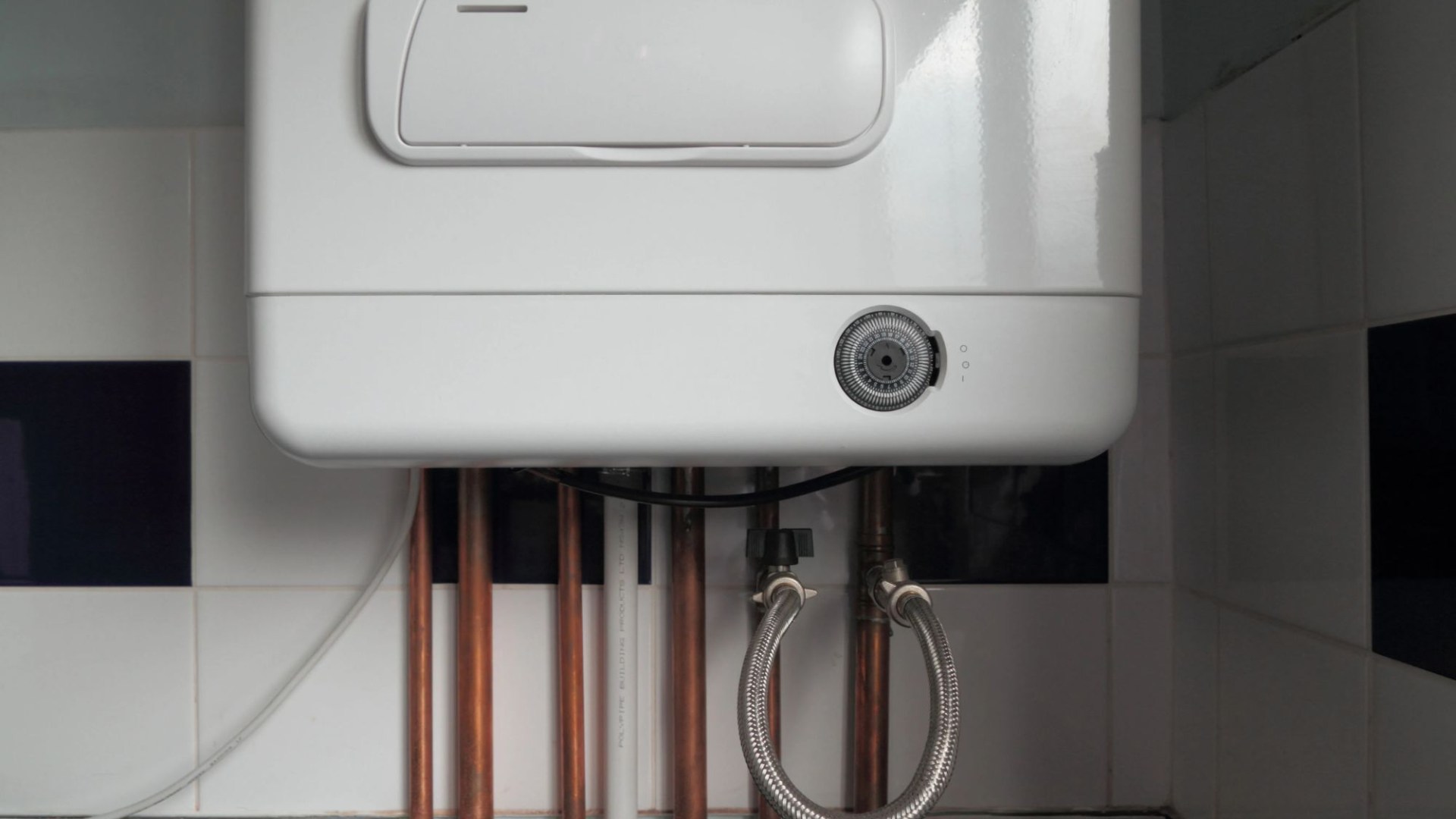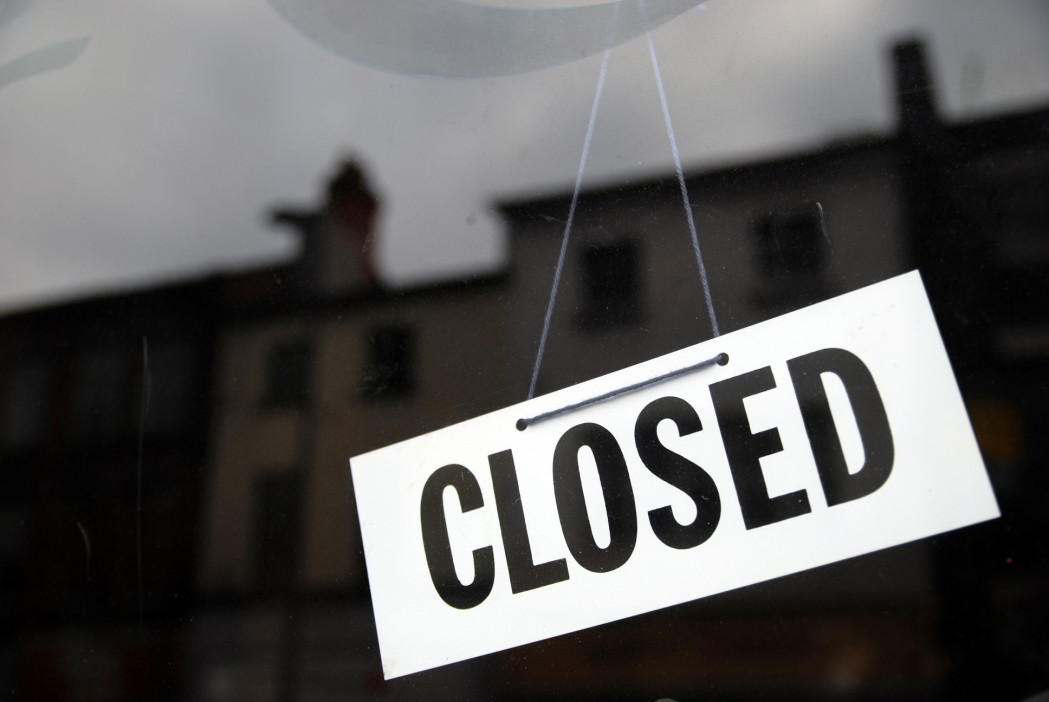Money
We won £1million on People’s Postcode Lottery but we never thought we’d get a penny – our street’s in a forgotten valley

A LUCKY woman who saw her “forgotten valley” street scoop £1million on the People’s Postcode Lottery said she didn’t think they would win anything.
Rebecca Banks was one of 11 winners on a street in Nantymeol, Ogmore Vale, to bag an eye-watering £83,333 each.
Rebecca broke down in tears after the win and said the windfall was hard to believe for “the forgotten valley” village.
She said: “We are the forgotten valley as we don’t have many amenities for anyone.
“The buzz on the street and around the whole place is just unreal.
“We’ve got a couple of small shops, the pub has only been open a couple of months, there’s no supermarkets and the nearest is a 20-minute drive away.
“We don’t have any petrol stations, nothing at all. So, for this to happen is just incredible.”
Rebecca, who works for a credit union, said: “We can just enjoy life and have fun.
“We’re going to Thailand next April, so we might make a few upgrades.
“And it’s my 40th birthday in December, so now we could go on a nice weekend away.”
Alan and Muriel Owen also won a life-changing sum in the lotto.
Muriel said: “I couldn’t believe it, I thought it was a scam at first, and then I said to [Alan] somebody was playing a sick joke on us.”
Fortunately, the phone call confirmed their win was real, and now the couple look forward to splashing their newfound wealth.
Alan and Muriel wasted no time and had already booked a trip to Turkey to celebrate.
The lucky pair added that it was “amazing” to share the win with the other residents, describing them as “lovely valleys people”.
Most of the winners in Nantymeol came together to celebrate at the local village pub, with owner Helen Smith describing the news as “fantastic”.
She said: “It was a lovely atmosphere here, we put on free prosecco for everybody to help them celebrate.”
“It’s nice to see lovely people winning money.”
It comes after a great gran who won £166,666 says her husband will have to write a “begging letter” if he wants to see a single penny of it.
Gill English landed the cash on People’s Postcode Lottery in Rugby, Warwickshire – and is now planning a slap-up carvery dinner for her big family.
The retired carer also said she is prepared to buy her hubby a new pair of shoes – but only once she sees his “begging letter”.
How to enter the People’s Postcode Lottery

- The Postcode Lottery is a subscription-based lottery in which players sign up with their postcode.
- Your postcode is your ticket number – 40p a day ensures entry into all drawers, or £12 a month.
- Once subscribed, they are automatically entered into every draw.
- Prizes are announced every day of the month.
- If your postcode gets luck, every player in your postcode wins.
- 33 per cent of the ticket price will go to charity that is re-funnelled back into the community.
Money
Royal Mail to hike price of first class stamps in DAYS – how to beat the rise

ROYAL Mail is increasing the price of stamps again in just a few days.
The price of first-class stamps will rise by 30p to £1.65, the second rise in a year, the delivery giant has confirmed.
Royal Mail said the price increase will come into force from October 7.
It comes after first class stamp prices increased by 10p to £1.35 in April and by 10p to 85p for second class.
The company has frozen the cost of second class stamps at 85p until 2029 in a bid to keep the sending of letters affordable.
Royal Mail says it has tried to keep price increases as low as possible in the face of declining letter volumes, and inflationary pressures.
When announcing the price rise earlier this month, it also cited the costs associated with maintaining the so-called Universal Service Obligation (USO) under which deliveries have to be made six days a week.
Postal regulator Ofcom declared in early September that Royal Mail could be allowed to axe Saturday deliveries for second class letters as part of an overhaul of the service.
Ofcom, which has been consulting on the future of the universal postal service since January, said it should keep first class deliveries to six days a week.
Under the plans being considered, second class deliveries would not be made on Saturdays and would only be on alternate weekdays, but delivery times would remain unchanged at up to three working days.
Ofcom said no formal decision had been made and it continues to review the changes, with aims to publish a consultation in early 2025 and make a decision in the summer of next year.
Royal Mail said letter volumes have fallen from 20billion in 2004/5 to around 6.7billion a year in 2023/4, so the average household now receives four letters a week, compared to 14 a decade ago.
The number of addresses Royal Mail must deliver to has risen by 4million in the same period meaning the cost of each delivery continues to rise.
Royal Mail said the universal service needs urgent reform, adding: “The minimum requirements of the universal service haven’t changed for over 20 years despite major changes to how people communicate.
“We have no certainty on regulatory reform and the rate of letter decline and ongoing losses means that Royal Mail has had to take the necessary steps within its power to address the very real and urgent financial sustainability challenge the universal service faces right now.
Nick Landon, Royal Mail’s chief commercial officer, said it always considers price increases “very carefully”.
However, he said, as letter volumes have declined by two-thirds since their peak, the cost of delivering each letter has inevitably increased.
He added: “A complex and extensive network is needed to get every letter and parcel across the country for a single price – travelling on trucks, planes, ferries and in some cases drones before it reaches its final destination on foot. We are proud to deliver the universal service, but the financial cost is significant.
“The universal service must adapt to reflect changing customer preferences and increasing costs so that we can protect the one-price-goes anywhere service, now and in the future.”
How are postage prices decided?
Royal Mail typically increases the price of stamps annually and this year the price rose in April.
Normally, it gives customers advance warning of around a month before pushing up prices.
This year the hike was announced in March.
Royal Mail said it is hiking the price of postage due to the decline in the number of people sending letters.
It blamed rising inflation for the increase too.
It also cited the costs associated with maintaining the so-called Universal Service Obligation (USO) under which deliveries have to be made six days a week.
Other Royal Mail changes
Royal Mail has urged the Government and Ofcom to review its obligations, arguing that it is no longer workable or cost-effective, given the decline in addressed letter post.
In its submission to Ofcom in April, it proposed ditching Saturday deliveries for second class post and cutting the service to every other weekday.
Lindsey Fussell, Ofcom’s group director for networks and communications, said: “If we decide to propose changes to the universal service next year, we want to make sure we achieve the best outcome for consumers.
“So we’re now looking at whether we can get the universal service back on an even keel in a way that meets people’s needs.
“But this won’t be a free pass for Royal Mail – under any scenario, it must invest in its network, become more efficient and improve its service levels.”
Royal Mail owner International Distribution Services (IDS), which agreed to a £3.57billion takeover by Czech billionaire Daniel Kretinsky in May, said “change cannot come soon enough” to the UK’s postal service.
Royal Mail also ousted old-style stamps and replaced them with barcoded ones last July.
The business said the move would make letters more secure.
Anyone who still has these old-style stamps and uses them may have to pay a surcharge.
How prices have changed
Royal Mail previously raised the price of first class stamps from £1.10 to £1.25 last October, before boosting them again in April.
Right now, a first class stamp costs £1.35, which covers the delivery of letters up to 100g.
Historically, the cost of stamps has seen a steady increase over the years, reflecting inflation and operational costs. For example, in 2000, a First Class stamp was priced at 41p.
A second class stamp is priced at 85p and also covers letters up to 100g.
The stamps can be bought individually if you buy it at a Post Office counter.
Otherwise, you can typically buy them in sets of multiple stamps.
The first class service typically delivers the next working day, including Saturdays, while the second class service usually delivers within 2-3 working days, also including Saturdays.
For larger letters, the cost of a first class stamp is £2.20 for items up to 100g, and a second class stamp for the same weight is £1.55.
Parcel delivery prices vary based on size and weight, starting from £3.69 for small parcels.
Additional services include the “signed for” option, which requires a signature upon delivery and adds an extra level of security.
The cost for first class signed for is £3.05, and for second class Signed for, it is £2.55.
The “special delivery” service guarantees next-day delivery by 1pm with compensation cover, with prices starting from £7.95.
Royal Mail periodically reviews and adjusts stamp prices, so it is advisable to check the latest rates on their official website or at your local post office.
How stamp prices have risen over time
The cost of a book of stamps has risen gradually over the past few decades.
First class stamps were worth 60p in the early 2010s and are now priced at £1.35.
Second class stamps were also worth 50p in the early 2010s but now sell for 85p.
First class stamps cost 95p at one point in 2023, before being hiked to £1.10 last April. They were then raised by 15p to £1.25 last October.
The latest hike on first class stamps to £1.65 in October means they will have risen by a staggering 43% since just last year.
How to beat the hike
Money guru Martin Lewis advised Brits to buy stamps in bulk before the new prices kick in to save a decent chunk of change for all their posting needs.
He said: “For years, every time stamps go up in price I’ve suggested people stock up and bulk-buy in advance, as provided the stamp doesn’t have a price on it and instead just says the postage class, it’s still valid after the hike.
“So you may as well stock up now, even if it’s just for Christmas cards for the next few Christmases.”
Do bear in mind though, if you stock up on stamps now, be careful to avoid fakes, he said.
Buy from reputable high street outlets and, where possible, hang on to your receipt.
Stamps are also available directly from the Royal Mail online shop, but you have to spend £50 to get free delivery.
Back in April, Royal Mail paused the £5 penalty for anyone who receives a letter with a fake stamp on it while it takes fresh action against counterfeits.
However, you could still be charged if you use a fake stamp when sending something.
To check whether a stamp is genuine, you can use Royal Mail’s new “fake stamp scanner” on the app.
Do you have a money problem that needs sorting? Get in touch by emailing money-sm@news.co.uk.
Plus, you can join our Sun Money Chats and Tips Facebook group to share your tips and stories
Money
Major TV streaming platform to charge up to £60 more if you share your account following Netflix – what you need to know

A MAJOR TV streaming platform has begun charging users £60 extra a year to share their accounts.
Disney+ has followed in the footsteps of streaming giant Netflix and begun charging for password sharing.
If you share your Disney+ account with friends or family who don’t live with you, you’ll now need to pay up to £4.99 a month.
Over a year that adds up to a whopping £60 extra – on top of the fee you already pay for an account.
The platform will be able to check where you’re accessing it from, automatically setting up a “household” for the account based on the devices you use and where your primary residence is.
If you log in while you’re away from home, you’ll need to verify your account using a one-time passcode sent to your email.
If you do want to share the account with someone else you’ll need to buy a separate “extra member” profile.
On top of your base price, it’ll cost £3.99 a month if you have a “standard with ads” plan and £4.99 a month if you’ve got a standard or premium plan.
It’s important to note that you won’t be charged automatically if you’re sharing your account right now.
You’ll need to buy the extra profile proactively, although it’s not yet clear if or how Disney+ will enforce the new policy.
For example, it may start locking you out if you’re not the account holder.
Sun Money has contacted Disney+ and will update this story when we hear back.
What we do know is that you can only buy one extra member add-on per account.
The extra member will only be able to stream on one device at a time, but will otherwise be able to watch the same content as the main account holder.
If you want to buy the add-on you’ll need to head to your account and set it up in the billing section.
It comes after Netflix banned viewers who don’t live under the same roof as the primary account holder from streaming content last year.
Under the new rules, Netflix charges users wanting to share an account £4.99 per month, which costs the same as having your own ad-based subscription.
How to save on your Disney+ subscription
If you’re looking for ways to combat the new charge, you can save on your subscription in other ways.
Lloyds Bank’s Club Lloyds account gives you 12 months’ Disney+ standard with ads streaming for free – it’s normally £4.99 a month, £59.88 for a year.
The account is fee-free as long as you meet the £2,000 a month minimum pay-in – there’s a £3 a month fee if you don’t.
Or, if you have a Tesco Clubcard with enough points, you can use your Clubcard vouchers to get 50% off a three-month Disney+ subscription.
Although, this only works with standard with ads and standard subscriptions.
When you swap your vouchers, you’ll get a code that’s valid until May 1, 2025, so if you’re an existing Disney+ subscriber you can wait till your current plan expires, and then use the code.
How to cancel your Disney+ subscription
If you’re unhappy with the changes to your subscription you can cancel anytime by following these simple steps.
It’s important to note though that if you cancel, you won’t be able to watch TV shows or any other content through the streaming platform.
You can cancel at any time and there is no fee to leave.
Start by logging into your Disney+ account online.
Then click the Manage Account button which can be found in the top corner of the screen.
From the plans and billing section, click on your subscription. Then, click cancel subscription and follow the last few steps to confirm.
Do bear in mind, that if you cancel halfway through your billing cycle, you’ll still be able to use the account until your next payment date.
How to save on subscriptions
MILLIONS of households across the UK are looking for ways to cut back on their spending and easy swaps can make a big difference.
Pay annually rather than monthly
Sometimes it can seem daunting to pay for a whole year’s subscription all at once.
But if you know you’re going to stick with the service, it can save you money to pay in one lump sum.
Rotate monthly subscriptions
If you have multiple TV and film subscriptions, you could save money by rotating what you pay for each month.
If you’re signed up for everything, you could be forking out a fortune
But each service allows users who pay monthly to cancel their subscription at any point with no fee.
So if you can plan what you want to watch, you could alternate which service you’re signed up to and save.
If you currently have all four services and switch to picking just one a month you could save hundreds of pounds.
Do your research and compare prices
With so many streaming options, it’s easy to lose track of which film and series are available on each.
But there’s no point paying for a subscription if it’s not got anything binge-worthy on offer for you.
If there’s a specific programme you want to watch, one tip is to research which platforms have it and choose that one.
If it’s on multiple platforms, check to see which one is cheaper.
Check for bundle deals too – some mobile phone providers offer free extras with contracts.
For example, Vodafone offers up to 24 months of Amazon prime, Spotify or YouTube Premium with certain pay monthly deals.
Calculate if it’s really worth the money
How often do you actually use your subscription?
If it’s only a few times a month, it might not be worth having them.
Make the most of free trials
Streaming services often let you try before you commit, and will give you one month for free.
Spotify, Apple Music, Tidal, Amazon Music Unlimited and YouTube Premium all currently give new users a one-month free trial, according to Which?
It’s worth taking advantage of this free period to work out if you’re actually going to use a service enough to justify paying for it.
Be sure to put the date in your diary that the trial ends so you don’t accidentally end up signing up and paying for a service you don’t want.
Cancel what you don’t use
It’s easy to lose track of ongoing subscriptions, especially if you’re paying out of several different bank accounts.
Apps like Money Dashboard and Snoop give users an overview of all their bank accounts in one place and can help you spot subscriptions you’re not using.
Do you have a money problem that needs sorting? Get in touch by emailing money-sm@news.co.uk.
Plus, you can join our Sun Money Chats and Tips Facebook group to share your tips and stories
Money
Just hours left for thousands of hard-up households to get £100s worth of white goods or new boiler – how to claim now

STRUGGLING households have only a few hours left to claim hundreds of pounds worth of white goods or a new boiler — here’s how to apply now.
The Household Support Fund (HSF) is a government scheme which aims to support those most in need.
Around £1.8million is available to households in Gateshead until September 30.
Households struggling to afford energy bills, food and wider essentials will be eligible for the fund.
The council confirmed they will use the funds to help residents replace kitchen appliances, install carpets for warmth, repair or replace boilers, and pay off large utility bills.
However, only householders in Gateshead who need support will be eligible.
Gateshead Council will evaluate a household’s income and expenses to decide if they qualify for assistance from the funds.
Residents who have received funds from the scheme since May 1 will no longer be eligible to apply again.
The council announced that they will not be offering food vouchers as part of the scheme.
Households in need of food support should reach out to Citizens Advice Gateshead for additional help.
What is the Household Support Fund?
The Household Support Fund (HSF) was first set up in October 2021 and has now been extended six times.
Councils in England are now able to benefit from the latest round of funding which amounts to £421million.
Nationwide councils have received a portion of the cash to distribute to households in need.
But there is a postcode lottery to determine who qualifies and each local authority can set its own eligibility criteria.
Yet if you have a limited amount of money or savings in the bank, or are deemed to be vulnerable or on benefits, you will probably qualify for help.
The HSF’s fifth round of funding will close on September 30, but the government has extended the scheme until April 2025 with the injection of a further £421million.
Applications may still be being accepted for the fifth round of funding, so it’s still worth checking with your local authority.
Applications to access the next round of funding will open in October.
Councils will determine how the cash is distributed. For example, households in Leicestershire have been able to apply for a financial award of £300 per household, which was paid in the form of vouchers to support with gas, electricity and food.
The payment could be delivered as a Post Office voucher, which can be redeemed for cash to help with gas, electricity or water, or an e-voucher to help with food costs that can be converted to a gift card for major supermarkets.
Meanwhile, residents of Leeds could receive council tax support with those with dependent children able to claim up to £100, while those without children could receive £25.
You should get in touch with your local council to see if you might be eligible for help.
You can find what council area you fall under by using the Government’s council locator tool on its website.
The help you can get varies, depending on who your local council is, as well as your personal situation.
You may be able to receive free cash or vouchers to cover the cost of heating your home, or the weekly food grocery shop.
If an applicant is already receiving benefits, these will not be affected by the HSF.
Additionally, you do not need to be getting benefits to receive vouchers or funds from the HSF.
Check with your local council to find out what support is available and the eligibility criteria.
How do you apply?
To get the help, you’ll need to look it up with your council because local authorities are the ones responsible for distributing the funding.
To find your local council, use the gov.uk council finder tool.
Once you’ve identified your local council, there should be information on how to apply for the funding online.
Every council has a separate application process, meaning specific details regarding how to apply depend on whereabouts you live.
The eligibility requirements to access the fund might vary in addition so it’s best to check with your local council for further details.
Some councils won’t need you to apply for help and will get in touch instead if you qualify.
If you can’t find any information on your council’s website, it’ s a good idea to call them and ask for further information.
History of the Household Support Fund

Here is everything you need to know…
The Household Support Fund was first launched in October 2021 to help Brits pay their way through winter amid the cost of living crisis.
Councils up and down the country got a slice of the £500million funding available to dish out to Brits in need.
It was then extended in the 2022 Spring Budget and for a second time in October 2022 to help those on the lowest incomes with the rising cost of living.
The DWP then confirmed a third extension of the scheme through to March 31, 2024.
Former chancellor Jeremy Hunt extended the HSF for the fourth time while delivering his Spring Budget on March 6, 2024.
The current fund is due to close on September 30 although there have been calls to extend it again.
Money
Major coffee chain with over 2,000 branches abruptly shuts branch permanently leaving customers ‘absolutely gutted’

A MAJOR coffee chain with over 2,000 branches has abruptly shut leaving customers “absolutely gutted”.
The Costa Coffee branch in Fleet Walk, Burnley, has pulled down the shutters for the final time.
The branch has actually been closed since the start of the month with customers left confused as to why it was empty.
But the company has now confirmed the closure is permanent, and it is set to be replaced by another shop.
A Costa Coffee spokesperson said: “We can confirm that our Costa Coffee store on Fleet Walk, Burnley, which is owned and operated by one of our corporate partners, closed for trade at the beginning of September 2024.
“Customers are however still able to visit the Costa Coffee store located in Tesco on Centenary Way.”
Many shoppers were left disappointed after the branch shut down.
Commenting on news of the closure one said: “Absolutely gutted on Saturday when I couldn’t get my Costa!”
Another wrote: “Town centre is dying of a slow death.”
A third quipped that the situation was a “Costa living crisis”.
The store only reopened in July 2022 following a refurbishment inside.
The popular café has already closed dozens of its sites in recent months.
Costa closed its branch in Alexandra retail park, Tunstall, Stoke-on-Trent, on Sunday 1 September.
The franchised site had been open for nine years, and customers have said it was a “great place”.
Coffee giant Costa regularly reviews its store estate across the UK.
This can include the closing or renovation of existing stores, or the opening of new stores.
Below we reveal the full list of Costa Coffee sites which have already shut and those which are due to close this year.
To find your nearest store or Costa Express machine, you can visit the chain’s website.
Which Costa Coffee shops have closed?
Each of the sites which have closed has further Costas nearby, which you can find using the locator tool on the chain’s website.
The following branches closed, or are set to close this year.
- Packhorse Road, Buckinghamshire – January 10
- King Street, Maidstone, Kent – January 20
- Chiswick High Road, London – February 6
- Bruntsfield Place, Edinburgh – February 14
- Rottingdean, Brighton and Cove – February
- Erdington High Street, Birmingham – March 1
- Cheltenham (inside House of Fraser) – March 23
- Stockton Heath, Warrington – April 11
- High Street West, Uppingham – May
- Rhyl High Street, North Wales – May 14
- The Martlets, Burgess Hill, July 8
- Maryport Street, Devizes – August 15
- Alexandra retail park, Tunstall – September 1
Here are the Costa shops which closed in 2023:
- Coliseum retail park in Ellesmere Port, Cheshire – June 3
- Welch Way, Witney – June 5
- Wigan town centre – June 25
- Five Rise Shopping Centre, Bingley – July 9
- High Street, Worcester – July (relocated September 15)
- Lowestoft’s North Quay retail park – July 23 (refurbishment)
- Church Street, Oakham – September 15
- West Bridgford, near Nottingham – September 22
- Commercial Street, Newport, Wales – October
- Church Street in Malvern, near Worcestershire – November 17
- Gatwick Airport South Terminal – November
Which other food and drink chains have closed?
Food and drink chains in general have been suffering in recent months as the cost of living has led to fewer people spending on eating out.
Businesses had been struggling to bounce back after the pandemic, only to be hit with soaring energy bills and inflation.
Multiple chains have been affected, resulting in big-name brands like Wetherspoons and Frankie & Benny’s closing branches.
In early 2023, burger chain Byron Burger collapsed into administration resulting in the loss of over 200 jobs.
Prezzo, the Italian chain, also revealed plans to shut 46 restaurants last year as a result of soaring energy and food costs, putting 810 jobs at risk.
More recently, Papa Johns confirmed 43 closures for May 2024.
Although some chains have managed to persevere, like Greggs which announced huge expansion plans.
Bakery chains Wenzel’s the Bakers and Patisserie Valerie are also looking at opening new branches.
How to save money eating out
THERE are a number of ways that you can save money when eating out. Here’s how:
Discount codes – Check sites like Sun Vouchers or VoucherCodes for any discount codes you can use to get money off your order.
Tastecard – This is a members club where you pay to have access to discounts worth up to 50 per cent off at thousands of restaurants. It costs £4.99 a month or £34.99 for the year.
Loyalty schemes – Some restaurants will reward you with discounts or a free meal if you register with their loyalty scheme, such as Nando’s where you can collect a stamp with every visit. Some chains like Pizza Express will send you discounts for special occasions, such as your birthday, if you sign up to their newsletter.
Voucher schemes – Look out for voucher schemes offered by third party firms, such as Meerkat Meals. If you compare and buy a product through CompareTheMarket.com then you’ll be rewarded with access to the discount scheme. You’ll get 2 for 1 meals at certain restaurants through Sunday to Thursday.
Student discounts – If you’re in full-time education or a member of the National Students Union then you may be able to get a discount of up to 15 per cent off the bill. It’s always worth asking before you place your order.
Money
Here are my top five ways to retire as early as 55 a pension expert

RETIRING early might sound like an impossible goal, but anyone can manage it if they know the tips and tricks to saving at the right time and in the right way.
The good news is that even small changes can make massive difference to how much you have saved and when you can afford to stop work.
A new movement, known as the FIRE movement (financial independence, retire early) are looking to retire as soon as possible.
But you don’t need to be this extreme – there are realistic ways to retire early without working too hard.
The earlier you start making small changes, though, the easier it is, and if you leave retirement saving too late, you might actually have to retire later than you’d prefer.
We spoke to Robert Cochran, a pensions expert at Scottish Widows, to uncover the secret to retiring early and comfortably.
You can watch the video above to hear more about his top tips.
Start early
Cochran’s first tip is to get saving as soon as possible. There are two reasons for this, the first is straightforward – starting earlier means more savings.
For instance, if you saved £100 a month into your pension from aged 16, you’d have £46,800 by the time you were 55, without any investment growth, employer contributions, or tax relief.
But, if you started at 40, you’d only have £22,500.
The more important consideration is investment growth, which compounds over time. Essentially this means that the returns you earn on your pensions are reinvested, which, so the money grows exponentially.
Cochran explained: “Einstein said that compound interest was the eighth wonder of the world, these who know it will grow it, and those who don’t will pay it.”
For instance, if you pay a thousand pounds into a pension, and it earns 5%, in the first year you would get £50 added, in the second you’d have £1,050 invested and get £52.50 back.
The year after that you would get £55.13 added, and by year 10 you’d be getting £77.57 in interest – all without saving any extra money.
If you keep adding to the pension each year, the results are even more stark. For instance, if you saved £1,000 a year into a pension with growth of 5%, from age 18-55, you’d have £107,709.55 to retire on.
Of that, £69,709.55 would be interest paid, which is essentially free money that you’ve earned on your savings.
If you were paying minimum auto-enrolment levels on the average UK full time salary, which works out as around £2,797 a year, you’d have £301,263.60 to retire on aged 55. But if you didn’t start saving till you were 30, you’d have just £142,964.33.
Consider saving into a pension for your children
Parents are allowed to open Junior SIPPs for their children, which is a way of saving money for their retirement.
You’re allowed to save up to £3,600 a year, 20% of which comes in the form of tax relief from the Government. That means you can save £240 a month before tax relief.
If you do this from birth until they are 18, you’ll have over £64,800 saved for them.
Even if they never pay another penny in themselves, they’d have £394,075.17 by age 55, with returns of 5%. If they wait until they’re 60 to access the cash, they could have half a million pounds to retire on.
Cochran said: “You can actually pay contributions in for children. So, imagine somebody’s born and then you pay in contributions for them till they’re age 18… and then you leave that money to grow by the time they’re 60.
“That money could be worth £1 million. And that’s purely through compound and growth.”
Don’t leave cash on the table
Cochran’s third tip is to make sure that you’re never missing out on free money that’s available.
The first thing to consider is auto-enrolment. Most people aged between 22 and 64 who are employed are auto-enrolled into a pension.
The minimum auto-enrolment level is 8% of your qualifying earnings, which is made up of a mix of money deducted from your salary, tax relief, and contributions from your employer.
It is possible to opt-out of auto-enrolment, but not only does that mean you won’t be saving, you’ll also miss out on the contributions from your workplace. That means you’re giving up free money from your boss, and you’ll lose the tax relief too.
Even if you’re not eligible for auto-enrolment, for instance if you’re under 22, or earn less than £10,000 a year from a single employer, you might be able to opt in.
For instance, if you earn more than £6,240, you can choose to join the scheme and your employer will still have to pay contributions.
Another key thing to look out for is matching, which is when your employer says it will pay more money into the scheme if you do, up to a maximum.
Cochran explained: “Go back to your employer and find out the maximum contribution you’re entitled to get from them.
“If you’re not receiving it, go ahead and ask for it. It might mean that you have to pay a little bit more, but do not leave cash on the table.”
Track down lost pensions
The Pension Policy Institute says that there is £26.6billion in lost pensions money.
Typically, this is where people have saved into a scheme but then moved job or house and forgotten about the pot.
Cochran said: “Use the Government’s free pension tracing service and find out what you’ve got.”
To get started, gather all the pensions paperwork you do have, and make a list of every employer you’ve worked for or private pension you’ve opened.
The tracing service will tell you who ran the scheme at the time, and how to contact them. Then, you can get in touch and check whether they have any retirement savings in your name.
Make a plan
The fifth thing to do if you want to retire early is make a concrete plan.
Cochran said: “You need to know what you’re going to be doing in retirement… so, look towards your future. Use the tools and calculators that are there to help you.”
We’ve done a round up of some of the most useful tools out there, which can help you work out what you’re on track to have saved, and what you can do to improve your retirement prospects.
Start by working out how much you need to have squirrelled away, and don’t be scared by illustrative examples.
For instance, the Pensions and Lifetime Savings Association (PLSA) retirement living standards research says that a single person who wants a comfortable retirement will need £43,100 a year to live on.
But of course, this is higher than the average UK salary, and there are lots of people who live comfortably on much less.
The amount you need will be determined by how early you want to retire, your life expectancy, your salary and typical monthly expenditure, and whether you own your home or not.
If you’re over 50, you can book a free and impartial session with a Pension Wise adviser who can share important information and make sure you understand all the facts before you decide to retire.
What are the different types of pensions?
WE round-up the main types of pension and how they differ:
- Personal pension or self-invested personal pension (SIPP) – This is probably the most flexible type of pension as you can choose your own provider and how much you invest.
- Workplace pension – The Government has made it compulsory for employers to automatically enrol you in your workplace pension unless you opt out.
These so-called defined contribution (DC) pensions are usually chosen by your employer and you won’t be able to change it. Minimum contributions are 8%, with employees paying 5% (1% in tax relief) and employers contributing 3%. - Final salary pension – This is also a workplace pension but here, what you get in retirement is decided based on your salary, and you’ll be paid a set amount each year upon retiring. It’s often referred to as a gold-plated pension or a defined benefit (DB) pension. But they’re not typically offered by employers anymore.
- New state pension – This is what the state pays to those who reach state pension age after April 6 2016. The maximum payout is £203.85 a week and you’ll need 35 years of National Insurance contributions to get this. You also need at least ten years’ worth to qualify for anything at all.
- Basic state pension – If you reach the state pension age on or before April 2016, you’ll get the basic state pension. The full amount is £156.20 per week and you’ll need 30 years of National Insurance contributions to get this. If you have the basic state pension you may also get a top-up from what’s known as the additional or second state pension. Those who have built up National Insurance contributions under both the basic and new state pensions will get a combination of both schemes.
Money
Full list of free cash worth up to £3,225 that could hit bank accounts by Christmas – how to apply

Millions of households could be in line for cost-of-living payments worth up to £3,225 this winter.
For those under financial pressure, several schemes offering support to help you get through the cold period.
With additional heating costs, not to mention Christmas expenses, the winter months can mean additional financial pressure.
For some this will be exacerbated by the government’s decision to limit the number of people who receive the £300 winter fuel payment from this year.
The support available includes the following…
Warm home discount – worth £150
The £150 warm home discount is available to pensioners and those on low incomes.
Those who qualify for the discount will have £150 deducted from their energy bills by the end of March 2025.
You’ll be eligible if you receive the guarantee credit element of Pension Credit, or are on a low income and have high energy costs.
The discount should be automatically deducted from your energy bill this winter if your eligible, but those on low-incomes living in Scotland need to apply through their energy providers.
If you were eligible for the payment last winter and did not receive it, contact your energy supplier.
If your energy supplier is unable to help write to the warm home discount scheme on 110552 Warm Home Discount Scheme,
PO Box 26965, Glasgow, G1 9BW.
Winter fuel payment – £300
This year winter fuel payments will only be made to retirees on Pension Credit and several other means-tested benefits.
Under the new rules, all households claiming the following benefits will automatically receive this year’s winter fuel payment, unless they live abroad:
- Pension Credit
- Universal Credit
- Income Support
- Income-based Jobseeker’s Allowance
- Income-related Employment Support Allowance
- Child tax credit
- Working tax credit
Only those living abroad and meeting certain conditions must apply for the cash this winter.
If you do not live in the UK, you’re only eligible for the winter fuel payment if:
- You moved to an eligible country before January 1, 2021
- You were born before September 23, 1958
- You have a genuine and sufficient link to the UK – this can include having lived or worked in the UK and having family in the UK
You only need to claim winter fuel payment if you’ve not received it since you moved abroad.
To claim by post, you’ll need to fill in the winter fuel payment claim form and post it to the Winter Fuel Payment Centre.
This will be available at www.gov.uk/winter-fuel-payment/how-to-claim from September 30.
Cold weather payment – £25 a week
Cold weather payments are made to eligible residents in areas where the temperature is recorded at zero degrees Celsius or below, for seven consecutive days.
A £25 payment will be made for each seven day period of very cold weather between November 1 2024 and March 31 2025.
You may be eligible for the payments if you receive:
- Pension Credit
- Income Support
- Income-based Jobseeker’s Allowance
- Income-related Employment and Support Allowance
- Universal Credit
- Support for Mortgage Interest
Payments are made automatically, so you do not need to apply for the benefit.
Christmas bonus – £10
Those receiving benefits could be eligible for a £10 Christmas bonus.
The Department for Work and Pensions usually pays the bonus during the first full week of December.
If you receive any of the following benefits, the money will be paid automatically into your registered payment account.
- Armed Forces Independence Payment
- Attendance Allowance
- Carer’s Allowance
- Child Disability Payment
- Constant Attendance Allowance
- Contribution-based Employment and Support Allowance
- Disability Living Allowance
- Incapacity Benefit at the long-term rate
- Industrial Death Benefit
- Mobility Supplement
- Pension Credit – the guarantee element
- Personal Independence Payment
- State Pension
- Severe Disablement Allowance
- Unemployability Supplement or Allowance
- War Disablement Pension at State Pension age
- War Widow’s Pension
- Widowed Mother’s Allowance
- Widowed Parent’s Allowance
- Widow’s Pension
The bonus isn’t available to those who receive Universal Credit only but someone on Universal Credit who also receives one of the qualifying benefits will receive it.
Household Support Fund – up to £740
Struggling households can access a range of support to help with the cost of living via the Household Support Fund.
The fund has recently has been extended for the sixth time, with £421million set to be made available to regional councils to distribute from October 2024.
The support you can access depends on where you live, but funds can be paid out as shopping or fuel vouchers, cash payments or other means.
Under the previous round of funding households in Leicester could apply to receive £300 payments to help with utilities and essential costs.
In Plymouth eligible residents could receive a maximum of £740 in vouchers.
This included £240 in supermarket vouchers, £200 in energy vouchers as well as an essential item of household furniture or white goods or £300 of clothing vouchers.
Schemes vary across the country, but every council will receive funding to distribute.
To see what’s on offer where you live contact your local council.
Energy grants – up to £2,000
Energy firms are handing out up to £2,000 to help those struggling with energy costs to cover bills.
A number of firms, including British Gas and Octopus Energy, are offering grants and other support.
They have different schemes and different criteria to access help, so you need to check what is offered through your provider.
But many will write off debts or offer grants for as much as £2,000.
If you’re not entitled to financial help this winter there are easy changes you can make to cut energy bills.
From reducing energy consumption to effectively heating your home The Sun’s guide can help you cut costs.
How to save on your energy bills
SWITCHING energy providers can sound like a hassle – but fortunately it’s pretty straight forward to change supplier – and save lots of cash.
Shop around – If you’re on an SVT deal you are likely throwing away up to £250 a year. Use a comparion site such as MoneySuperMarket.com, uSwitch or EnergyHelpline.com to see what deals are available to you.
The cheapest deals are usually found online and are fixed deals – meaning you’ll pay a fixed amount usually for 12 months.
Switch – When you’ve found one, all you have to do is contact the new supplier.
It helps to have the following information – which you can find on your bill – to hand to give the new supplier.
- Your postcode
- Name of your existing supplier
- Name of your existing deal and how much you payAn up-to-date meter reading
It will then notify your current supplier and begin the switch.
It should take no longer than three weeks to complete the switch and your supply won’t be interrupted in that time.
Do you have a money problem that needs sorting? Get in touch by emailing money-sm@news.co.uk.
Plus, you can join our Sun Money Chats and Tips Facebook group to share your tips and stories
-

 Womens Workouts6 days ago
Womens Workouts6 days ago3 Day Full Body Women’s Dumbbell Only Workout
-

 Technology2 weeks ago
Technology2 weeks agoWould-be reality TV contestants ‘not looking real’
-

 News7 days ago
News7 days agoOur millionaire neighbour blocks us from using public footpath & screams at us in street.. it’s like living in a WARZONE – WordupNews
-

 Science & Environment1 week ago
Science & Environment1 week ago‘Running of the bulls’ festival crowds move like charged particles
-

 Science & Environment1 week ago
Science & Environment1 week agoMaxwell’s demon charges quantum batteries inside of a quantum computer
-

 Science & Environment1 week ago
Science & Environment1 week agoSunlight-trapping device can generate temperatures over 1000°C
-

 Science & Environment1 week ago
Science & Environment1 week agoHyperelastic gel is one of the stretchiest materials known to science
-

 Science & Environment2 weeks ago
Science & Environment2 weeks agoHow to unsnarl a tangle of threads, according to physics
-

 News2 weeks ago
News2 weeks agoYou’re a Hypocrite, And So Am I
-

 Science & Environment1 week ago
Science & Environment1 week agoHow to wrap your mind around the real multiverse
-

 Science & Environment1 week ago
Science & Environment1 week agoPhysicists are grappling with their own reproducibility crisis
-

 Science & Environment2 weeks ago
Science & Environment2 weeks agoITER: Is the world’s biggest fusion experiment dead after new delay to 2035?
-

 Science & Environment1 week ago
Science & Environment1 week agoLiquid crystals could improve quantum communication devices
-

 Sport1 week ago
Sport1 week agoJoshua vs Dubois: Chris Eubank Jr says ‘AJ’ could beat Tyson Fury and any other heavyweight in the world
-

 Science & Environment1 week ago
Science & Environment1 week agoQuantum ‘supersolid’ matter stirred using magnets
-

 Science & Environment2 weeks ago
Science & Environment2 weeks agoWhy this is a golden age for life to thrive across the universe
-

 Science & Environment1 week ago
Science & Environment1 week agoQuantum forces used to automatically assemble tiny device
-

 Science & Environment2 weeks ago
Science & Environment2 weeks agoCaroline Ellison aims to duck prison sentence for role in FTX collapse
-

 CryptoCurrency1 week ago
CryptoCurrency1 week agoCardano founder to meet Argentina president Javier Milei
-

 Science & Environment1 week ago
Science & Environment1 week agoNuclear fusion experiment overcomes two key operating hurdles
-

 Science & Environment2 weeks ago
Science & Environment2 weeks agoNerve fibres in the brain could generate quantum entanglement
-

 News1 week ago
News1 week agoIsrael strikes Lebanese targets as Hizbollah chief warns of ‘red lines’ crossed
-

 Womens Workouts1 week ago
Womens Workouts1 week agoBest Exercises if You Want to Build a Great Physique
-

 Science & Environment2 weeks ago
Science & Environment2 weeks agoTime travel sci-fi novel is a rip-roaringly good thought experiment
-

 Science & Environment2 weeks ago
Science & Environment2 weeks agoLaser helps turn an electron into a coil of mass and charge
-

 CryptoCurrency1 week ago
CryptoCurrency1 week agoDZ Bank partners with Boerse Stuttgart for crypto trading
-

 CryptoCurrency1 week ago
CryptoCurrency1 week agoEthereum is a 'contrarian bet' into 2025, says Bitwise exec
-

 Womens Workouts1 week ago
Womens Workouts1 week agoEverything a Beginner Needs to Know About Squatting
-

 Science & Environment7 days ago
Science & Environment7 days agoMeet the world's first female male model | 7.30
-

 News2 weeks ago
News2 weeks ago▶️ Media Bias: How They Spin Attack on Hezbollah and Ignore the Reality
-

 CryptoCurrency1 week ago
CryptoCurrency1 week agoBitcoin miners steamrolled after electricity thefts, exchange ‘closure’ scam: Asia Express
-

 CryptoCurrency1 week ago
CryptoCurrency1 week agoDorsey’s ‘marketplace of algorithms’ could fix social media… so why hasn’t it?
-

 CryptoCurrency1 week ago
CryptoCurrency1 week agoRedStone integrates first oracle price feeds on TON blockchain
-

 CryptoCurrency1 week ago
CryptoCurrency1 week agoBitcoin bulls target $64K BTC price hurdle as US stocks eye new record
-

 Science & Environment1 week ago
Science & Environment1 week agoHow do you recycle a nuclear fusion reactor? We’re about to find out
-

 CryptoCurrency1 week ago
CryptoCurrency1 week agoBlockdaemon mulls 2026 IPO: Report
-

 CryptoCurrency1 week ago
CryptoCurrency1 week agoCoinbase’s cbBTC surges to third-largest wrapped BTC token in just one week
-

 News1 week ago
News1 week agoBrian Tyree Henry on voicing young Megatron, his love for villain roles
-

 News7 days ago
News7 days agoFour dead & 18 injured in horror mass shooting with victims ‘caught in crossfire’ as cops hunt multiple gunmen
-

 Womens Workouts6 days ago
Womens Workouts6 days ago3 Day Full Body Toning Workout for Women
-

 Travel5 days ago
Travel5 days agoDelta signs codeshare agreement with SAS
-

 Politics4 days ago
Politics4 days agoHope, finally? Keir Starmer’s first conference in power – podcast | News
-

 CryptoCurrency1 week ago
CryptoCurrency1 week agoCrypto scammers orchestrate massive hack on X but barely made $8K
-

 Science & Environment1 week ago
Science & Environment1 week agoQuantum time travel: The experiment to ‘send a particle into the past’
-

 CryptoCurrency1 week ago
CryptoCurrency1 week agoLow users, sex predators kill Korean metaverses, 3AC sues Terra: Asia Express
-

 CryptoCurrency1 week ago
CryptoCurrency1 week ago‘No matter how bad it gets, there’s a lot going on with NFTs’: 24 Hours of Art, NFT Creator
-

 CryptoCurrency1 week ago
CryptoCurrency1 week agoSEC asks court for four months to produce documents for Coinbase
-

 Sport1 week ago
Sport1 week agoUFC Edmonton fight card revealed, including Brandon Moreno vs. Amir Albazi headliner
-
Business1 week ago
How Labour donor’s largesse tarnished government’s squeaky clean image
-

 Technology1 week ago
Technology1 week agoiPhone 15 Pro Max Camera Review: Depth and Reach
-

 News1 week ago
News1 week agoBrian Tyree Henry on voicing young Megatron, his love for villain roles
-

 Womens Workouts1 week ago
Womens Workouts1 week agoKeep Your Goals on Track This Season
-

 Science & Environment2 weeks ago
Science & Environment2 weeks agoA slight curve helps rocks make the biggest splash
-

 CryptoCurrency1 week ago
CryptoCurrency1 week ago$12.1M fraud suspect with ‘new face’ arrested, crypto scam boiler rooms busted: Asia Express
-

 CryptoCurrency1 week ago
CryptoCurrency1 week agoDecentraland X account hacked, phishing scam targets MANA airdrop
-

 CryptoCurrency1 week ago
CryptoCurrency1 week agoCertiK Ventures discloses $45M investment plan to boost Web3
-

 CryptoCurrency1 week ago
CryptoCurrency1 week agoBeat crypto airdrop bots, Illuvium’s new features coming, PGA Tour Rise: Web3 Gamer
-

 CryptoCurrency1 week ago
CryptoCurrency1 week agoTelegram bot Banana Gun’s users drained of over $1.9M
-

 Science & Environment1 week ago
Science & Environment1 week agoWhy we need to invoke philosophy to judge bizarre concepts in science
-

 Science & Environment1 week ago
Science & Environment1 week agoFuture of fusion: How the UK’s JET reactor paved the way for ITER
-

 News1 week ago
News1 week agoChurch same-sex split affecting bishop appointments
-

 Science & Environment1 week ago
Science & Environment1 week agoTiny magnet could help measure gravity on the quantum scale
-

 CryptoCurrency1 week ago
CryptoCurrency1 week ago‘Silly’ to shade Ethereum, the ‘Microsoft of blockchains’ — Bitwise exec
-

 Technology1 week ago
Technology1 week agoFivetran targets data security by adding Hybrid Deployment
-
Business1 week ago
Thames Water seeks extension on debt terms to avoid renationalisation
-
Politics1 week ago
‘Appalling’ rows over Sue Gray must stop, senior ministers say | Sue Gray
-

 Womens Workouts1 week ago
Womens Workouts1 week agoHow Heat Affects Your Body During Exercise
-

 News7 days ago
News7 days agoWhy Is Everyone Excited About These Smart Insoles?
-

 Politics2 weeks ago
Politics2 weeks agoTrump says he will meet with Indian Prime Minister Narendra Modi next week
-

 Technology2 weeks ago
Technology2 weeks agoCan technology fix the ‘broken’ concert ticketing system?
-

 Health & fitness2 weeks ago
Health & fitness2 weeks agoThe secret to a six pack – and how to keep your washboard abs in 2022
-

 CryptoCurrency1 week ago
CryptoCurrency1 week ago2 auditors miss $27M Penpie flaw, Pythia’s ‘claim rewards’ bug: Crypto-Sec
-

 CryptoCurrency1 week ago
CryptoCurrency1 week agoLouisiana takes first crypto payment over Bitcoin Lightning
-

 CryptoCurrency1 week ago
CryptoCurrency1 week agoJourneys: Robby Yung on Animoca’s Web3 investments, TON and the Mocaverse
-

 CryptoCurrency1 week ago
CryptoCurrency1 week ago‘Everything feels like it’s going to shit’: Peter McCormack reveals new podcast
-

 CryptoCurrency1 week ago
CryptoCurrency1 week agoSEC sues ‘fake’ crypto exchanges in first action on pig butchering scams
-

 CryptoCurrency1 week ago
CryptoCurrency1 week agoBitcoin price hits $62.6K as Fed 'crisis' move sparks US stocks warning
-

 Science & Environment1 week ago
Science & Environment1 week agoBeing in two places at once could make a quantum battery charge faster
-

 Science & Environment1 week ago
Science & Environment1 week agoA new kind of experiment at the Large Hadron Collider could unravel quantum reality
-

 CryptoCurrency1 week ago
CryptoCurrency1 week agoVonMises bought 60 CryptoPunks in a month before the price spiked: NFT Collector
-

 Science & Environment1 week ago
Science & Environment1 week agoHow one theory ties together everything we know about the universe
-

 Science & Environment1 week ago
Science & Environment1 week agoA tale of two mysteries: ghostly neutrinos and the proton decay puzzle
-

 Science & Environment1 week ago
Science & Environment1 week agoUK spurns European invitation to join ITER nuclear fusion project
-

 CryptoCurrency1 week ago
CryptoCurrency1 week agoVitalik tells Ethereum L2s ‘Stage 1 or GTFO’ — Who makes the cut?
-

 CryptoCurrency1 week ago
CryptoCurrency1 week agoEthereum falls to new 42-month low vs. Bitcoin — Bottom or more pain ahead?
-

 News1 week ago
News1 week agoBrian Tyree Henry on his love for playing villains ahead of “Transformers One” release
-

 Womens Workouts1 week ago
Womens Workouts1 week agoWhich Squat Load Position is Right For You?
-

 News1 week ago
News1 week agoBangladesh Holds the World Accountable to Secure Climate Justice
-

 Health & fitness2 weeks ago
Health & fitness2 weeks agoThe maps that could hold the secret to curing cancer
-

 CryptoCurrency1 week ago
CryptoCurrency1 week agoHelp! My parents are addicted to Pi Network crypto tapper
-

 CryptoCurrency1 week ago
CryptoCurrency1 week agoCZ and Binance face new lawsuit, RFK Jr suspends campaign, and more: Hodler’s Digest Aug. 18 – 24
-

 Science & Environment1 week ago
Science & Environment1 week agoSingle atoms captured morphing into quantum waves in startling image
-

 Science & Environment1 week ago
Science & Environment1 week agoHow Peter Higgs revealed the forces that hold the universe together
-

 Fashion Models1 week ago
Fashion Models1 week agoMixte
-

 Politics1 week ago
Politics1 week agoLabour MP urges UK government to nationalise Grangemouth refinery
-

 Money1 week ago
Money1 week agoBritain’s ultra-wealthy exit ahead of proposed non-dom tax changes
-

 Womens Workouts1 week ago
Womens Workouts1 week agoWhere is the Science Today?
-

 Womens Workouts1 week ago
Womens Workouts1 week agoSwimming into Your Fitness Routine
-

 News2 weeks ago
News2 weeks agoBrain changes during pregnancy revealed in detailed map
-
Business2 weeks ago
JPMorgan in talks to take over Apple credit card from Goldman Sachs










You must be logged in to post a comment Login